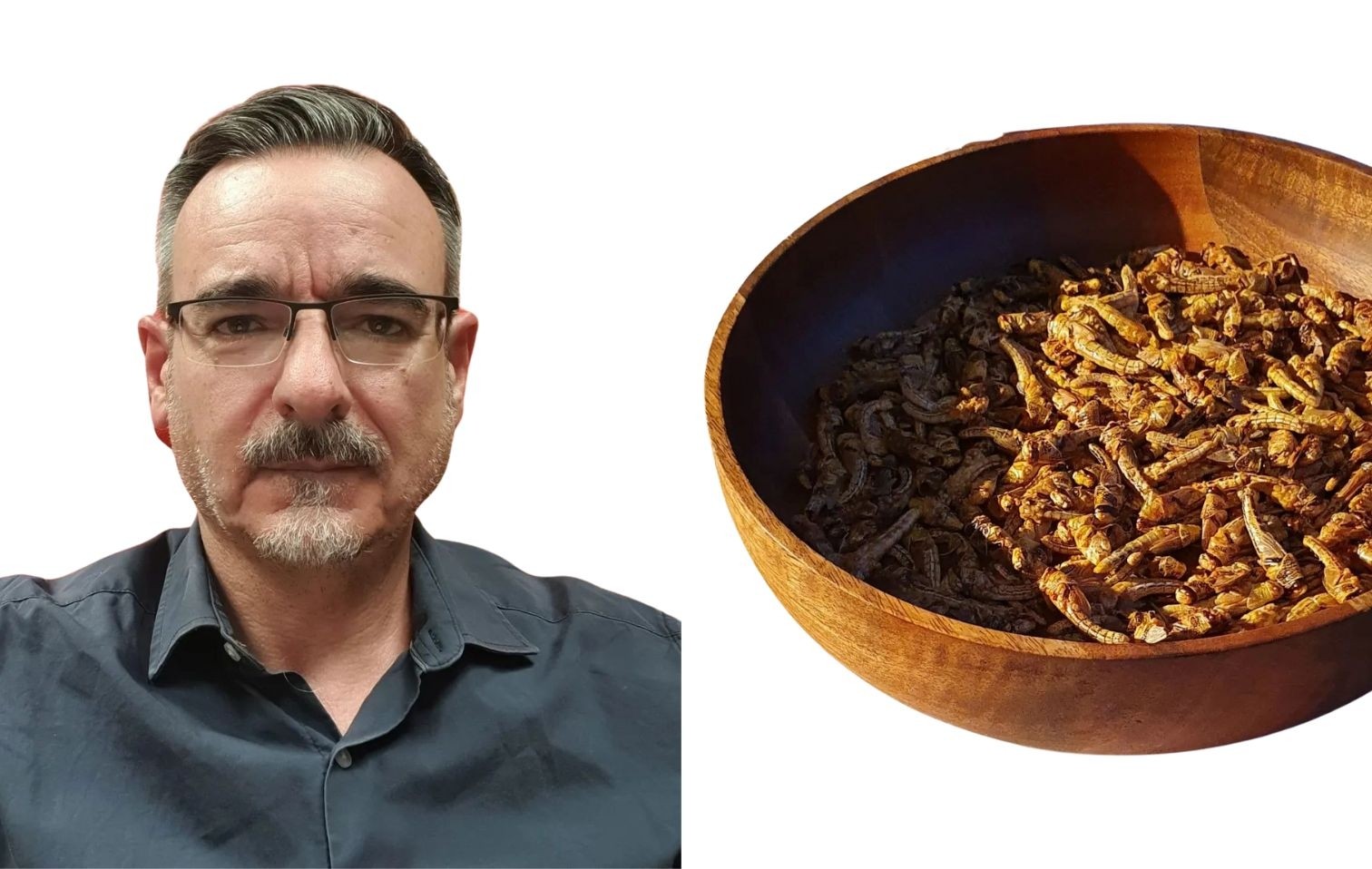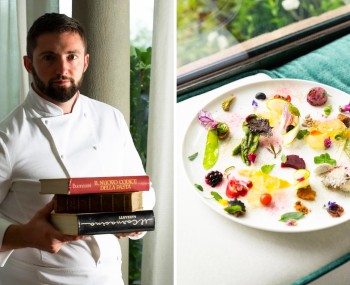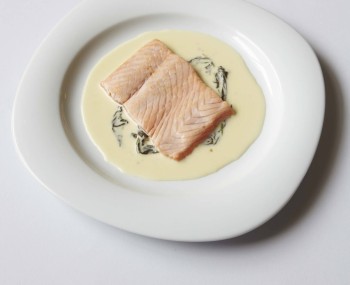“We are moving from initial rejection to growing acceptance of the idea that insects can be eaten, but there is still a lot of public awareness to be raised. Crickets? We sell them to top chefs and they can fetch up to €70 per kg.”
All photos from the Insectum website
In the lively market of Ruzafa in Valencia, Insectum stands out as a pioneering business in Spain, offering a surprising variety of edible insects. Under the guidance of Alberto José Pérez, the company offers an assortment ranging from classic crickets, worms, and locusts—available in various preparations, from smoked to chocolate—to more innovative products such as protein bars, chips, and even insect-flavored beer. However, Pérez's enthusiasm is tempered by the stringent regulations governing the industry. Before 2018, specific laws in Spain and the European Union allowed the importation of various species of invertebrates from countries with more permissive legislation. “We used to be able to offer cockroaches, scorpions, ants, and various types of worms. Even tarantulas and scorpions were available. Today, unfortunately, this is no longer possible, and this has been a serious blow to the business,” Pérez confesses to El País.

Not all is lost, however. Despite these challenges, according to the producer, there is a gradual change in the Spanish public's attitude towards entomophagy. “We are moving from initial rejection to growing acceptance of the idea that insects can be eaten. Whether people actually do so is another matter, but there is awareness of the possibility, and many are curious to try,” explains the owner of Insectum. The store's clientele is diverse, ranging from individual citizens to star chefs, catering companies, and cooking schools. ‘I also remember having customers from the army,’ adds Pérez with a smile.
A niche market waiting to grow
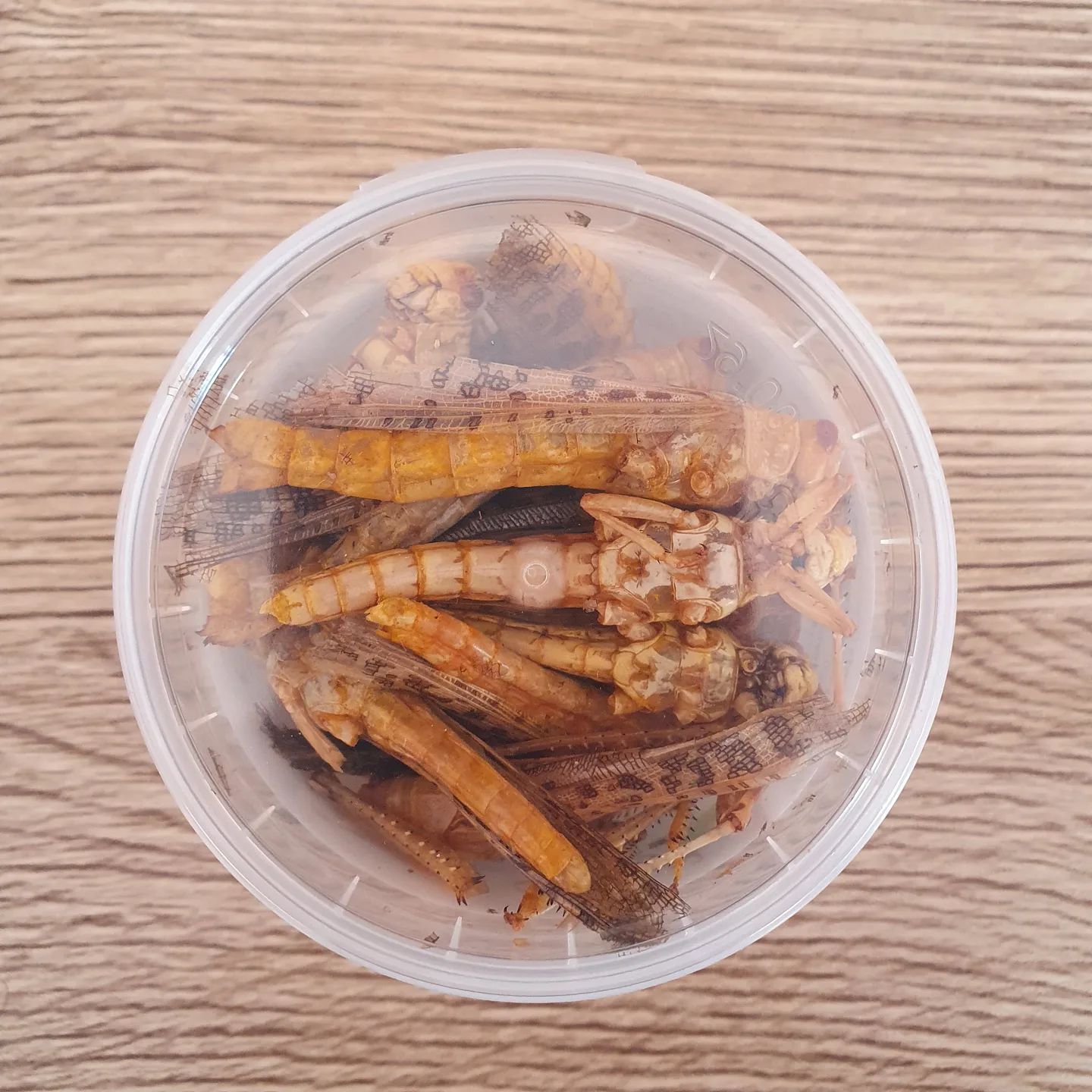
Despite growing interest, Pérez believes that current demand in Spain and Europe is still insufficient to bring the entomophagy sector out of its current niche status. “There is a lack of established culture and tradition; we need to overcome this barrier as soon as possible. Objectively, insects are nutritious and tasty, but it will take several generations to make this cultural leap,” he predicts. The entrepreneur also acknowledges that the high cost of these products, due to their limited consumption, is an additional obstacle. A kilo of crickets, for example, can cost more than €70 at his company. Pérez speculates that large-scale distribution will likely come about through the integration of insects as ingredients in other foods, such as bread, pizza bases, or chocolates.
Legal challenges
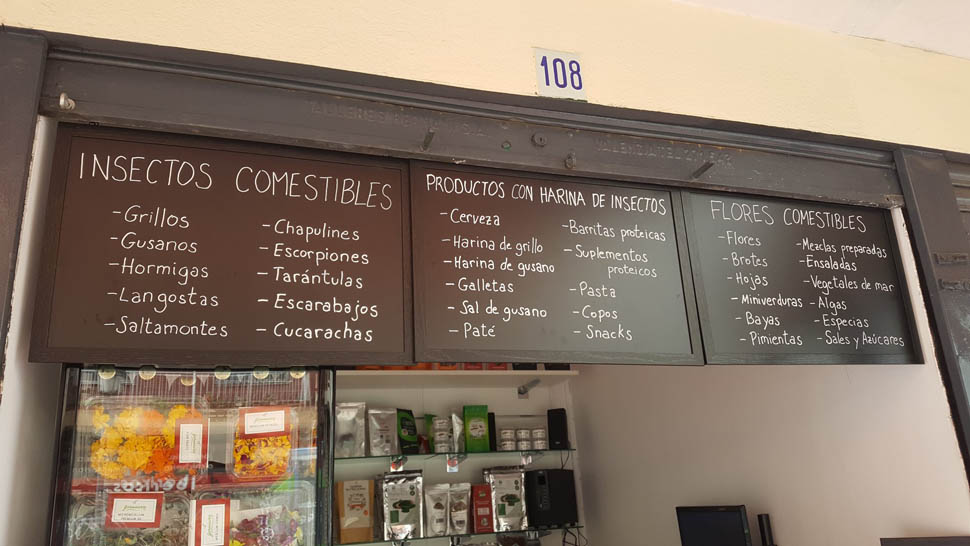
Alberto José Pérez is certainly not the only one facing a market fraught with pitfalls. Isaac Petràs, considered a pioneer in insect marketing in Spain and also interviewed by El País, shares a similar experience. Between 2003 and 2008, his stall in Barcelona's famous La Boqueria market offered up to 40 different insect products. The initiative began almost as a game with customers of his family, who had been in the mushroom business for decades. The aim was to introduce these ingredients to the general public, broadening their horizons and overcoming prejudices. “Here we eat snails, frog legs and rabbit, and we consider it natural. But people from outside often don't understand that. The same goes for insects. Tasting a giant Colombian ant or a bamboo worm fried in coconut oil can be surprising because they are so delicious," says Petràs.
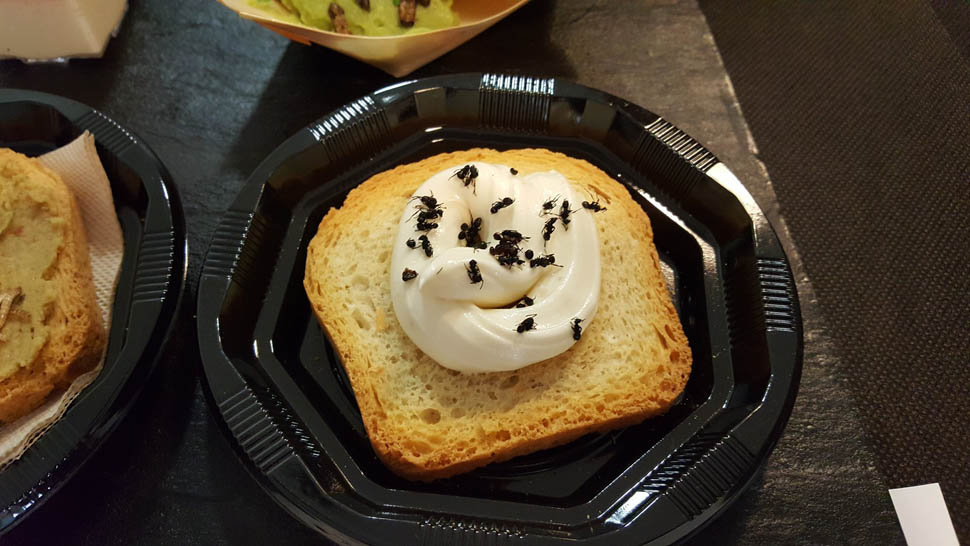
Aware of cultural resistance in Spain, the Petràs family chose to offer insects that would be more appealing to local tastes. “We avoided the more 'extreme' options and focused on more accessible alternatives: roasted insects with tasty seasonings, chocolate-covered crickets, which were a hit, Mexican red ant eggs, which taste similar to caviar, and lollipops with a worm inside,” he recalls. Petràs recounted his experience in the book Comer insectos (Eating Insects), an account of his travels discovering these small creatures, enriched with recipes featuring grasshoppers, crickets, and ants. “My aim is simply to encourage people to have fun in the kitchen,” he says, while admitting that his consumption of insects remains confined to his travels in countries such as Thailand, Sri Lanka, and Mexico. “In Spain, as much as I like them, perhaps it's not yet the right time. In the future, will we stop eating cocochas and ask for worms? I think that's unlikely,” he reflects. What about you, have you ever eaten insects or would you be willing to try them? The debate is open in Spain; we'll tell you about the situation in Italy, but in the meantime, let us know what you think.
